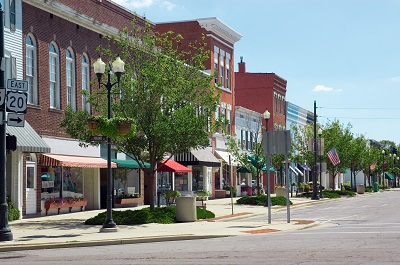Every business owns some sort of property or equipment and it’s important to keep that property safe. Commercial property insurance provides coverage for common perils that face a business property. Even if you fully or partially operate business from home, a homeowner’s insurance policy typically won’t cover work equipment.
insurance policy typically won’t cover work equipment.
Businesses that typically have the most to lose when it comes to commercial property fall within these industries:
- Real Estate
- Construction
- Technology
- Retail/Distribution
Commercial property insurance can come in many different business packages such as a business owners policy or you can purchase it alone. Keep in mind that commercial property covers physical perils and doesn’t include liability protection.
What Does Commercial Property Insurance Cover?
Commercial property insurance generally covers damages due to fire, explosions, theft, vandalism, burst pipes and storms.
It can cover belongings such as:
- Business building
- Work equipment
- Computers
- Furniture
- Outdoor signs
- Fences
- Inventory
What Does Commercial Property Insurance Not Cover?
Commercial property insurance does not usually include earthquake or flood coverage. These are separate coverages you can add to your company’s commercial property policy. While commercial property insurance covers computers, it doesn’t cover the information on those computers. Nor does commercial property cover work vehicles, which require commercial auto insurance.
Overall, items not covered beneath commercial property insurance are:
- Vehicles. Even if you use a personal vehicle for work purposes, you may need commercial auto insurance. Commercial property also may not cover equipment in transit.
- Cyberattacks. You can purchase cyber liability insurance to protect client information or assets stored digitally. Commercial property will cover the physical computer except in cases of normal wear and tear or hardware/software failure.
- Earthquakes or floods. Earthquake coverage and flood coverage almost always come as an additional policy. If your area is prone to either of these perils, you may want to invest in extra insurance.
- Embezzlement and employee theft. Commercial property insurance doesn’t help if an employee steals from the company or embezzles money. For this, you may need crime insurance.
- Liability. Liability insurance comes with most business policies but doesn’t involve commercial property insurance. Commercial property insurance only pays for damages to the physical property and won’t cover you if someone decides to sue.
- Medical expenses. If someone is injured on your property or by your equipment, you may need liability insurance to pay for the damages, as commercial property insurance won’t.
- Power failure. If damage or loss occurs due to a power outage in your area, commercial property insurance likely won’t cover you.
How Does Commercial Property Insurance Work?
When creating your commercial property insurance policy, take into account both the value of the company buildings and contents as well as the type of policy you want. There are two ways to receive compensation for items lost due to a covered peril: replacement cost and actual cash value. With replacement cost, you will receive the exact amount it would take to replace or rebuild the property or items lost. If you choose to receive the actual cash value of the items or building, you will receive payment that accounts for depreciation. In other words, if the value of your equipment goes down over time, you will receive the depreciated value when your claim is approved. Make sure your policy is the policy you want and need for your business.
How Much Does Commercial Property Insurance Cost?
On average, a business may pay around $200-$300 a year on a standalone commercial property policy. It may be more cost-effective to bundle it with a business owner’s policy, however, which is slightly more and includes liability insurance.
Also Read: Liability Coverage Options Within BOPS